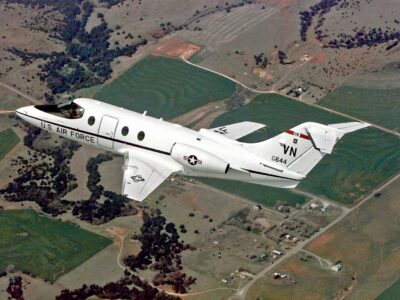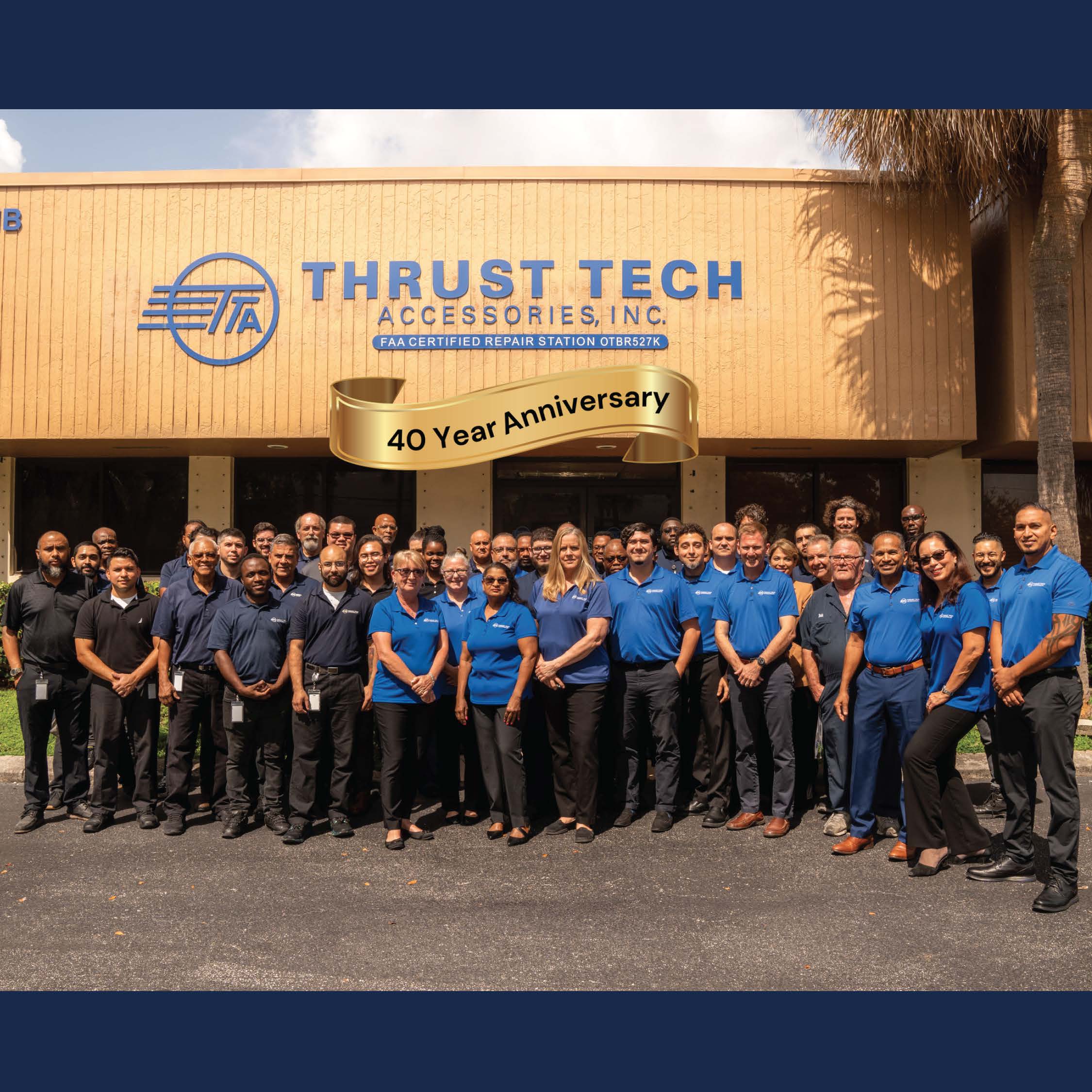
A Culture of Service…
In a perfect world, no company would need unplanned customer support, and customers would always be satisfied. Everything would tick along like clockwork, on a set schedule and fixed budget, with no blips along the journey. Realistically of course, life continues to routinely throw out business challenges , especially in today’s fast-paced world, consistently impacted by climate, politics, health issues and unforeseen events.
“Nowhere is that more evident than within the aviation world and, more specifically, within MRO operations industrywide,” says Stanley Kowlessar, general manager, Thrust Tech Accessories (TTA), an experienced MRO based near Fort Lauderdale Executive Airport in South Florida. Why so? “Even several years post-pandemic, we’re still finding aircraft parts suppliers who’ve never fully made the ‘comeback’ from Covid.”
In some cases, Kowlessar says the “manufacturing skillset” has simply walked out the door. That’s required some vendors to sell, consolidate or trim services, leaving ‘parts vacuums’ in certain areas, or even close businesses completely. “So, although aviation’ is fully back in swing, as regional airlines, corporate jets, cargo operators and private aircraft have returned to the skies, the supply chain pipeline for aviation parts and solutions is still wildly unpredictable at times,” Kowlessar stresses.
Needless to say, that situation can still create challenges well beyond the control of even the most reputable MRO in getting a customer’s OTG (on the ground) aircraft back in service. Fortunately, helping customers adjust to the marketplace’s new dynamics is where TTA’s dedicated Customer Service Team excels. This skilled group of employees is focused solely on managing relationships, ensuring a commitment to success for the company’s valued customers and continuously working to build trust.
Routinely, TTA customer service staff secure quotes for customers considering potential MRO work, set up timelines for completion, and carefully monitor the work in progress, all while communicating consistently with customers. “Throughout the entire process they quickly respond to customer questions, address concerns with key action items and parts orders, and advocate on a customer’s behalf inside the company.”
In addition, “dedicated customer service also helps us proactively manage our customers’ expectations regarding marketplace hurdles that may be beyond our control, such as a supply chain issue or parts shortage,” he adds. On that front, TTA proactively doubled its parts inventory during the pandemic and has enlarged it continually since then. This continues to benefit many customers when their planes are OTG and require a critical part installed to get back flying once again.
Just how robust is the aviation MRO marketplace right now? Oliver Wyman, a global management consulting firm, reports that the global aviation maintenance, repair, and overhaul market has essentially fully recovered from the impacts of the COVID-19 pandemic. The market reached over $114 billion in 2024 sales, up 7.2 percent above the 2019 pre-COVID peak. In fact, the firm expects the MRO industry to grow by an annual rate of 2.7% through 2035, to $156 billion.
At the same time, challenges still include a shortage of skilled, qualified mechanics to replace retiring workers industrywide. Plus, “supply chain constraints remain a critical bottleneck for both aircraft production and aftermarket services, leading to higher costs and longer turnaround times for maintenance,” the Oliver Wyman study indicated.
“This is why effective communication is so critical,” says Kowlessar. Recognizing that its valued customers also have their own clients to satisfy, TTA strives to keep customers in the loop for any shifts in timing or other problems that may develop. “While a customer may not be happy with an update we provide, we are committed to always keeping them clearly updated on what’s happening,” he stresses.
Studies have shown that more than 90 percent of people view “empathy” as a crucial element in customer service quality, and TTA focuses on delivering that too. The MRO also appreciates that each of its customers is unique and has different needs. So, it never adopts a one-size-fits all approach to customer service. Taking that a step farther, Kowlessar shares that his team members also strongly value “learning” from TTA’s customers during their ongoing interactions, appreciating their strong aviation knowledge and backgrounds.
Overall, Kowlessar describes TTA’s customer service team approach as rooted in deep institutional knowledge, innovative solutions, a focus on effective customer communications, and a culture that sets the MRO apart: “We remain lean, resourceful, always ready to pivot and committed to serving our nearly 300 customers worldwide without losing a step, whatever the marketplace conditions,” Kowlessar stresses. “It’s all about trust and relationships.”






